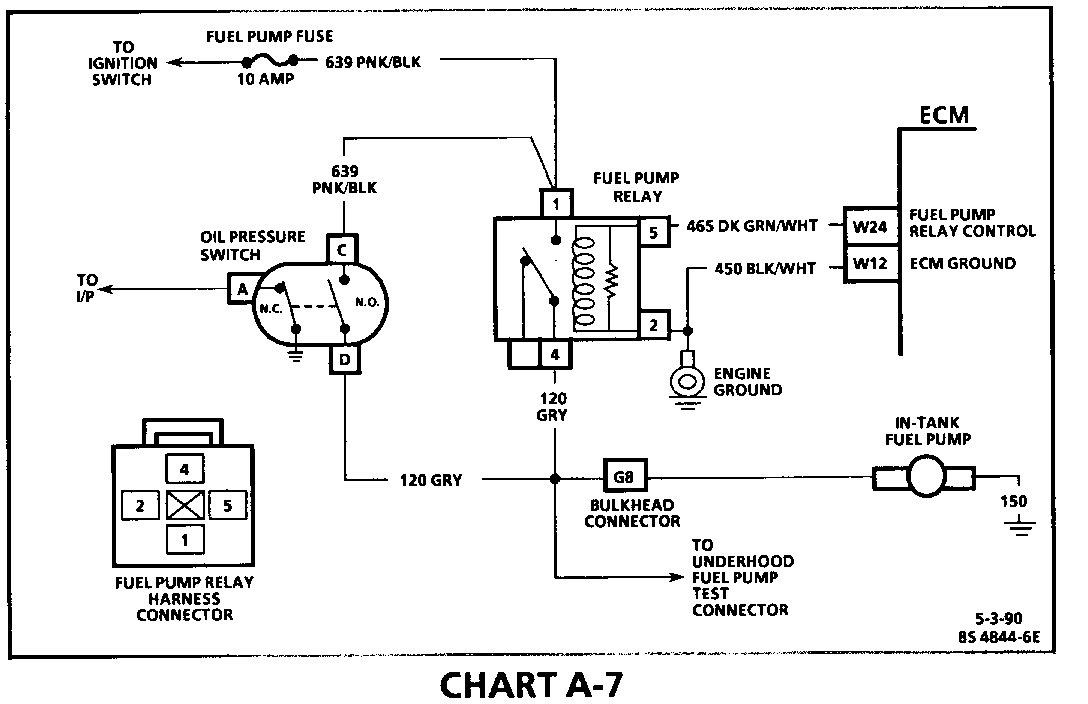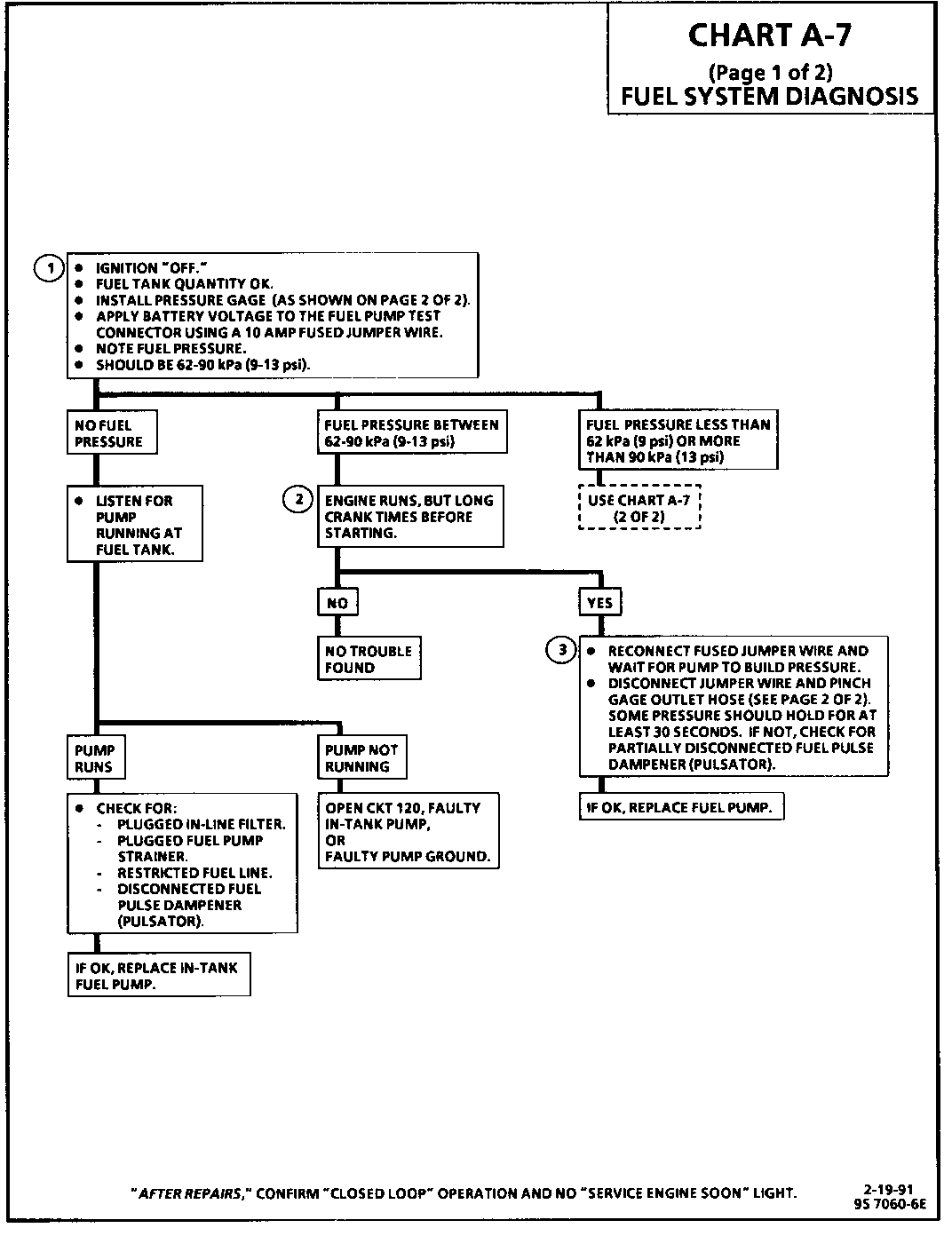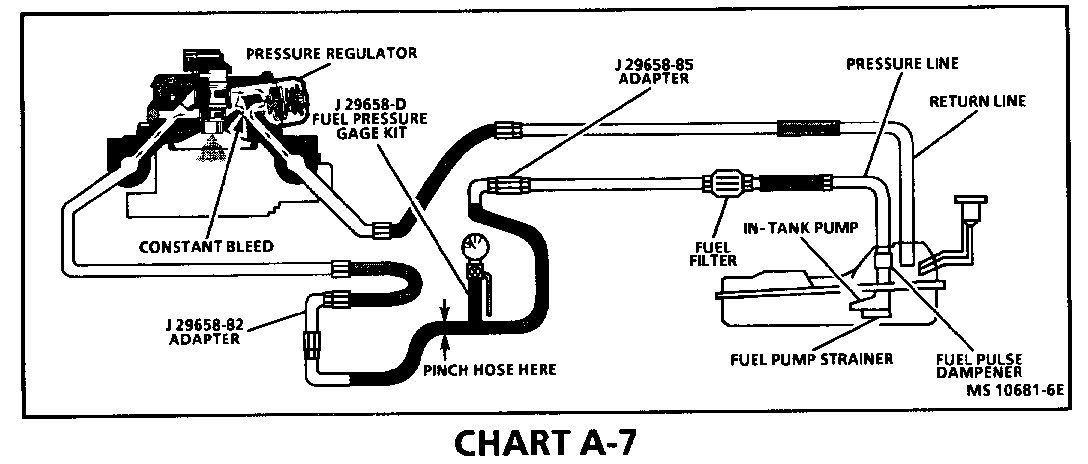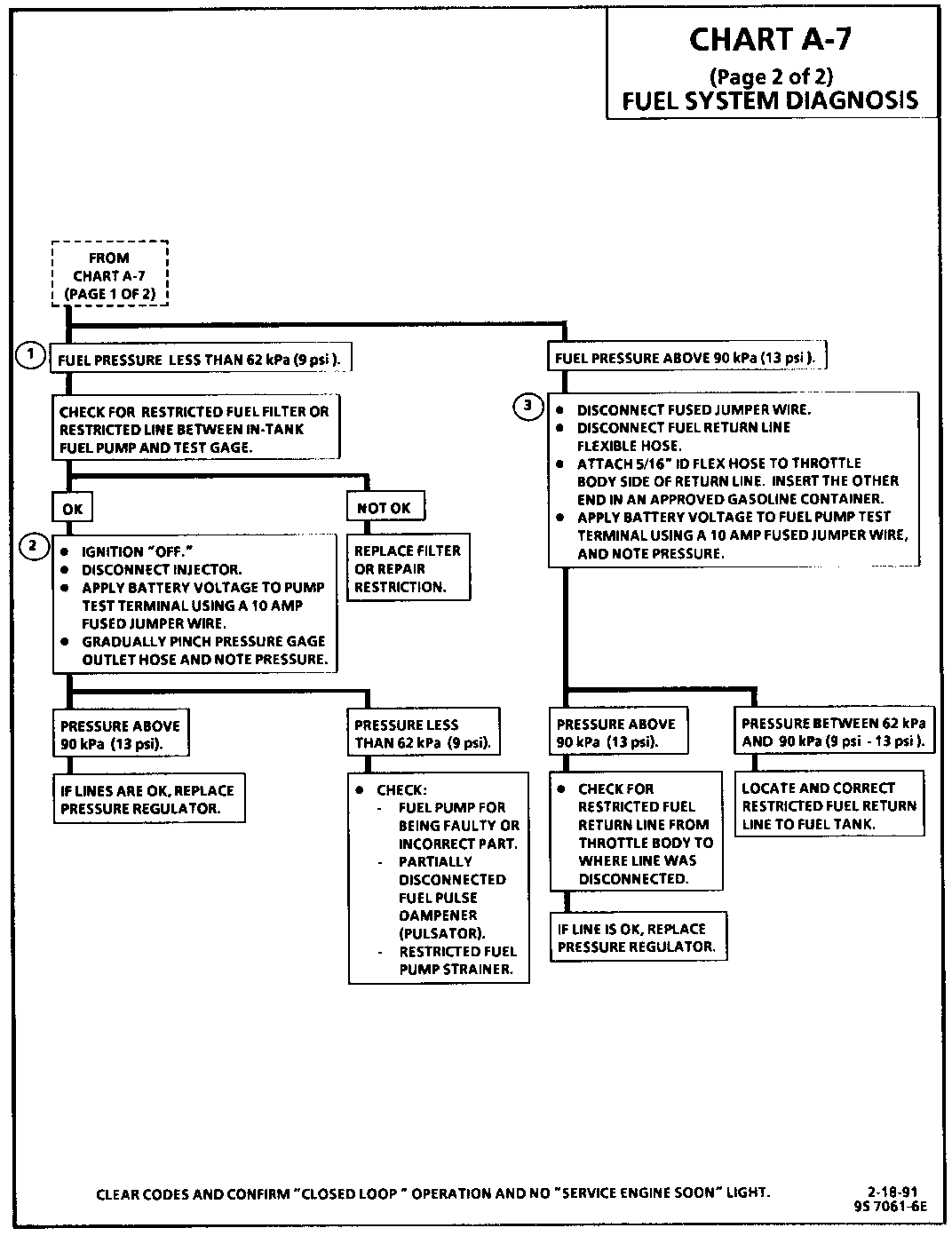SERVICE MANUAL UPDATE SEC. 6E2 DRIVEABILITY & EMISSION

Subject: SERVICE MANUAL UPDATE-SECTION 6E2 DRIVEABILITY AND EMISSIONS REVISED FUEL SYSTEM DIAGNOSIS CHART A-7
Models Affected: 1990-91 2.OL SUNBIRD MODELS (VIN K)
This bulletin has been revised to include different applications, revised electrical diagnostic information, and updated tool numbers. This bulletin supersedes bulletin 91-6-14 issued 11190. Please discard bulletin 91-6-14.
The Throttle Body Injection (TBI) unit used on these engines contains a constant bleed in the fuel meter assembly which allows fuel pressure to bleed down when the engine is turned "OFF." The new fuel system diagnosis procedures follow on the attached artwork:
CHART A-7 (Page 1 of 2) FUEL SYSTEM DIAGNOSIS
Circuit Description:
When the ignition switch is turned "ON," the Electronic Control Module (ECM) will turn "ON" the in-tank fuel pump. It will remain "ON" as long as the engine is cranking or running, and the ECM is receiving ignition reference pulses.
If there are no reference pulses, the ECM will shut "OFF" the fuel pump within 2 seconds after key "ON."
The pump will deliver fuel to the TBI unit, where the system pressure is controlled to 62 to 90 kPa (9 to 13 psi). Excess fuel is then returned to the fuel tank.
The fuel pump test terminal is located in the driver's side of the engine compartment. When the engine is stopped, the pump can be turned "ON" by applying battery voltage to the test terminal.
Test Description: Number(s) below refer to circled number(s) on the diagnostic chart.
Tools Required:
J 29658-D - Fuel Pressure Gage Kit J 29658-82 0-ring Fuel Line Fitting Adapter J 29658-85 Fuel Pressure Gage Adapter
1. Fuel pressure should be noted while fuel pump is running. Fuel pressure will drop immediately after fuel pump stops running due to a controlled bleed in the fuel system. The fuel pump test terminal is located near the driver's side cowl of the engine compartment.
2. This portion of the chart will verify operation of the "wet" fuel system. If the fuel pump relay circuit is suspected of causing the long cranking, use CHART A-5.
3. This check will verify the operation of the fuel pump check valve. A leaking check valve will cause fuel in the pressure (feed) line to drain back to the tank and result in long crank times. The amount of pressure is not important as long as some pressure is maintained.
Diagnostic Aids:
Improper fuel system pressure can result in one of the following symptoms:
o Cranks, but won't run. o Code 44. o Code 45. o Cuts out, may feel like ignition problem. o Poor fuel economy, loss of power. o Hesitation.
CHART A-7 (Page 2 of 2) FUEL SYSTEM DIAGNOSIS
Test Description: Number(s) below refer to circled number(s) on the diagnostic chart.
1. Fuel pressure less than 62 kPa (9 psi) falls into two areas:
o Amount of fuel to injectors OK, but pressure is less than 62 kPa (9 psi). In this case the fuel injection system will be lean and may set Code 44. Also, hard starting cold and poor overall performance.
o Restricted now causing pressure drop. Normally, a vehicle with a fuel pressure of less than 62 kPa (9 psi) at idle will not be driveable. However, if the pressure drop occurs only while driving, the engine will surge then stop as pressure begins to drop rapidly.
2. Turning the fuel pump "ON" and restricting fuel flow at the fuel pressure gage (as shown) will determine if the fuel pump can supply enough fuel pressure to the injector to operate properly, above 62 kPa (9 psi).
NOTICE: Do not restrict the fuel return line as this may damage the fuel pressure regulator.
3. This test determines if the high fuel pressure is due to a restricted fuel return line, or a throttle body pressure regulator problem. Apply battery voltage to the fuel pump test connector only long enough to get an accurate fuel pressure reading.




General Motors bulletins are intended for use by professional technicians, not a "do-it-yourselfer". They are written to inform those technicians of conditions that may occur on some vehicles, or to provide information that could assist in the proper service of a vehicle. Properly trained technicians have the equipment, tools, safety instructions and know-how to do a job properly and safely. If a condition is described, do not assume that the bulletin applies to your vehicle, or that your vehicle will have that condition. See a General Motors dealer servicing your brand of General Motors vehicle for information on whether your vehicle may benefit from the information.
